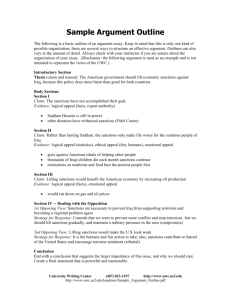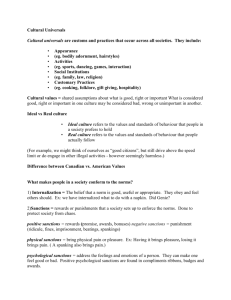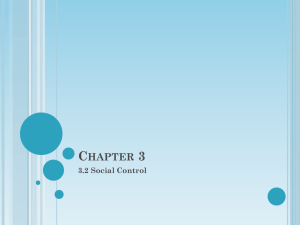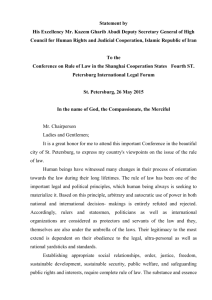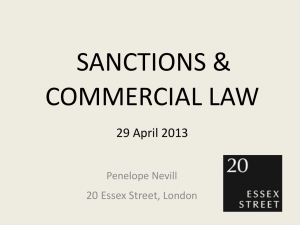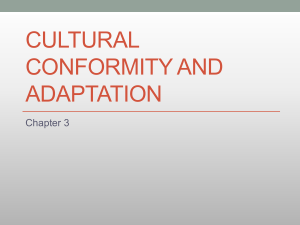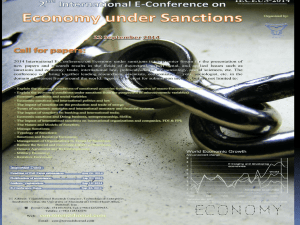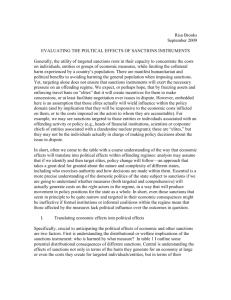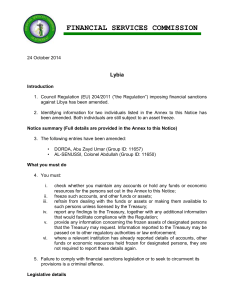Topic #1- Protecting Cultural Heritage Sites in Warzones: Cultural
advertisement
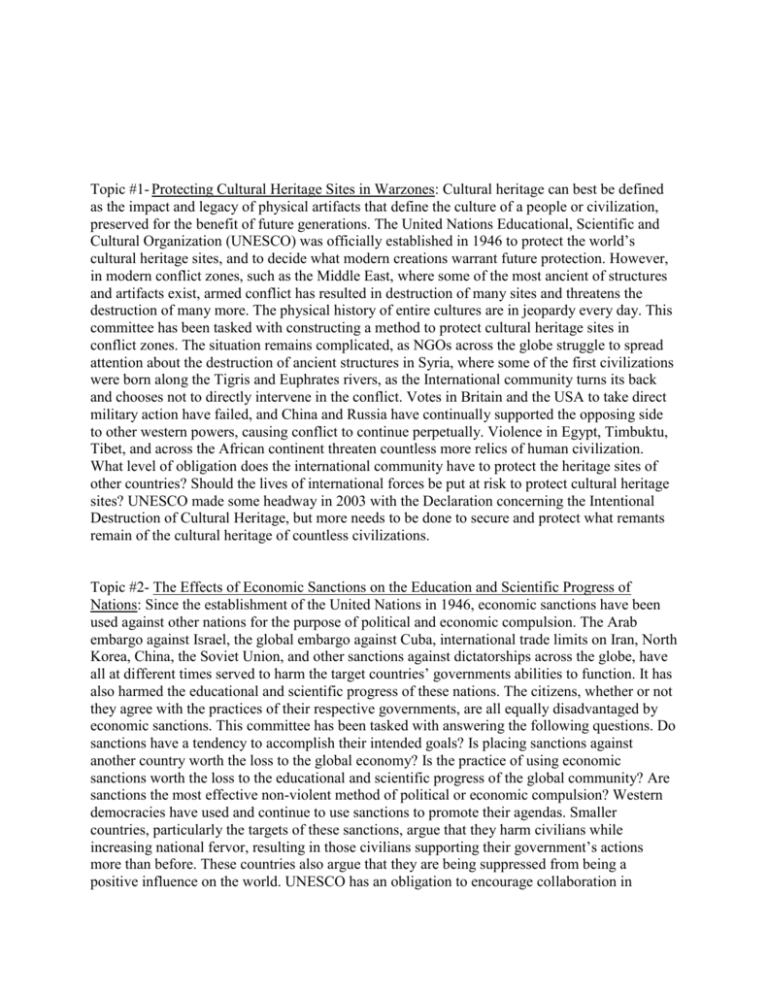
Topic #1- Protecting Cultural Heritage Sites in Warzones: Cultural heritage can best be defined as the impact and legacy of physical artifacts that define the culture of a people or civilization, preserved for the benefit of future generations. The United Nations Educational, Scientific and Cultural Organization (UNESCO) was officially established in 1946 to protect the world’s cultural heritage sites, and to decide what modern creations warrant future protection. However, in modern conflict zones, such as the Middle East, where some of the most ancient of structures and artifacts exist, armed conflict has resulted in destruction of many sites and threatens the destruction of many more. The physical history of entire cultures are in jeopardy every day. This committee has been tasked with constructing a method to protect cultural heritage sites in conflict zones. The situation remains complicated, as NGOs across the globe struggle to spread attention about the destruction of ancient structures in Syria, where some of the first civilizations were born along the Tigris and Euphrates rivers, as the International community turns its back and chooses not to directly intervene in the conflict. Votes in Britain and the USA to take direct military action have failed, and China and Russia have continually supported the opposing side to other western powers, causing conflict to continue perpetually. Violence in Egypt, Timbuktu, Tibet, and across the African continent threaten countless more relics of human civilization. What level of obligation does the international community have to protect the heritage sites of other countries? Should the lives of international forces be put at risk to protect cultural heritage sites? UNESCO made some headway in 2003 with the Declaration concerning the Intentional Destruction of Cultural Heritage, but more needs to be done to secure and protect what remants remain of the cultural heritage of countless civilizations. Topic #2- The Effects of Economic Sanctions on the Education and Scientific Progress of Nations: Since the establishment of the United Nations in 1946, economic sanctions have been used against other nations for the purpose of political and economic compulsion. The Arab embargo against Israel, the global embargo against Cuba, international trade limits on Iran, North Korea, China, the Soviet Union, and other sanctions against dictatorships across the globe, have all at different times served to harm the target countries’ governments abilities to function. It has also harmed the educational and scientific progress of these nations. The citizens, whether or not they agree with the practices of their respective governments, are all equally disadvantaged by economic sanctions. This committee has been tasked with answering the following questions. Do sanctions have a tendency to accomplish their intended goals? Is placing sanctions against another country worth the loss to the global economy? Is the practice of using economic sanctions worth the loss to the educational and scientific progress of the global community? Are sanctions the most effective non-violent method of political or economic compulsion? Western democracies have used and continue to use sanctions to promote their agendas. Smaller countries, particularly the targets of these sanctions, argue that they harm civilians while increasing national fervor, resulting in those civilians supporting their government’s actions more than before. These countries also argue that they are being suppressed from being a positive influence on the world. UNESCO has an obligation to encourage collaboration in education and science on a global level. Sanctions against another country harm that country’s ability to communicate with the global community and to advance their own level of educational and scientific advancement enough to have a measurable impact on the progress of the rest of the world. Once a country falls behind, catching up is difficult. Much debate has occurred on the international level, but as long as the most powerful nations, particularly among the security council, continue to support the use of sanctions, they will continue to be used for the foreseeable future.



